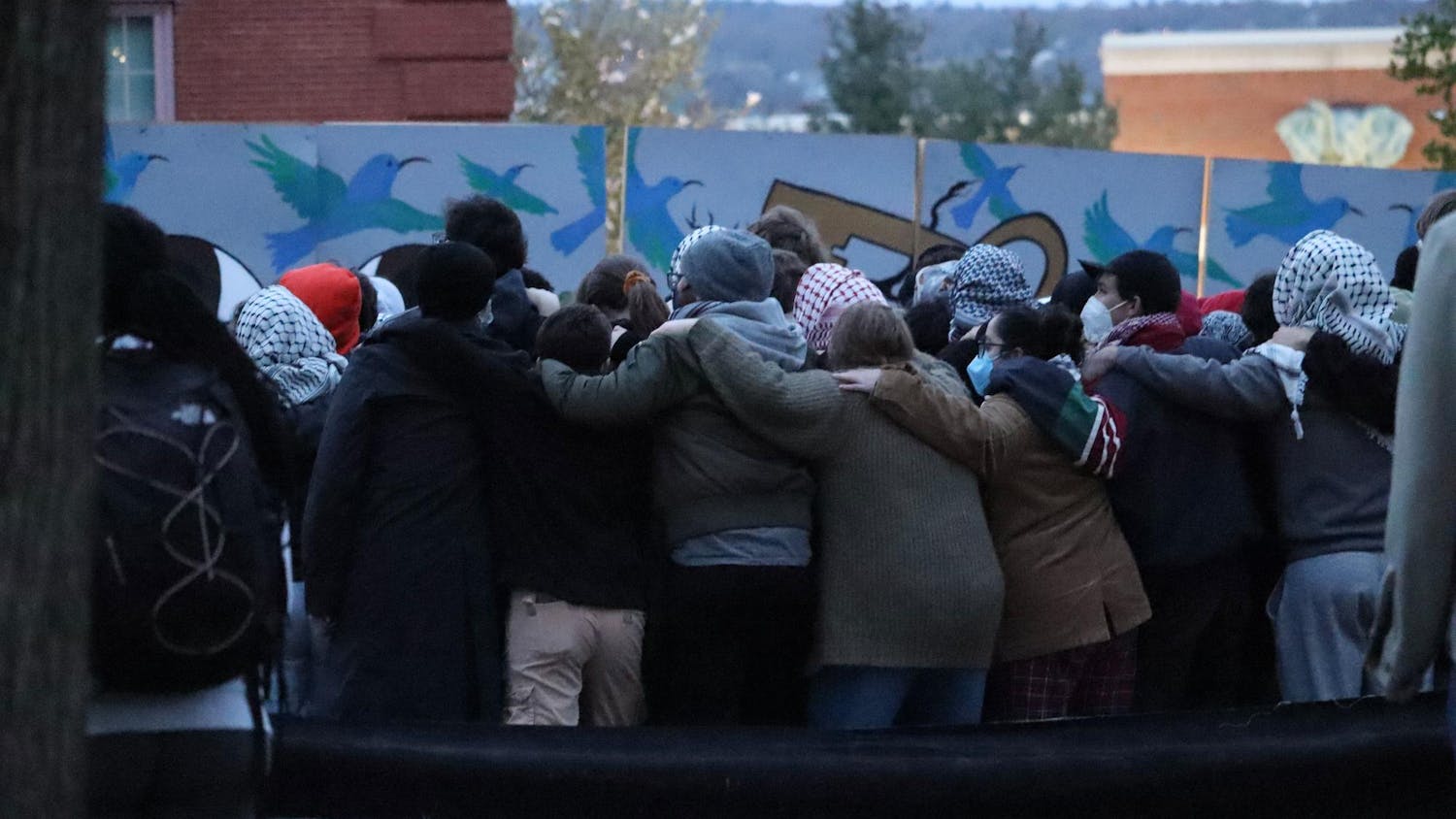The Greek community has in the past month stepped up cooperation with campus lesbian, gay, bisexual and transgender (LGBT) students and organizations after members of both groups expressed the need for better mutual understanding.
The widespread discussion began as a result of several incidences of verbal abuse that occurred within fraternity houses, Tom Bourdon, director of the LGBT Center, said.
"Some of the incidents were based around language and things being said to people that definitely don't work as far as creating a safe environment on this campus," he said.
"We thought it was time to create a better understanding between the two communities," Bourdon said.
The Greek and LGBT communities earlier this month hosted Shane Windmeyer, an activist for improving LGBT life on college campuses nationwide.
Windmeyer's lecture, the centerpiece of a larger attempt at cultural change on the part of the Greek community, was entitled "Pledging Acceptance: The Intersection of LGBT and Greek Life at Tufts." The audience at the presentation filled Cabot Auditorium, Bourdon said.
New members of the Greek community were required to attend the lecture as part of their member education following rush, which also includes seminars on hazing and alcohol policy education, Interim Director of Fraternity and Sorority Affairs Jamie Engle said.
"By working with our newest members, we set a new precedent for the house, and we're able to build off of each new class," Theta Delta Chi (123) Vice−President Aaron Tartakovsky, a junior, said. "The younger guys help make the future of the house."
"These are issues that we feel, as a community, are important," Engle added. "We want to educate our new members on these issues and hopefully shift the culture in the direction of being more inclusive."
Logan Cotton, a 123 brother who helped to organize the event, said that one of the event's goals was to bridge the gap between the two communities.
"It's an opportune first step in the larger considered effort between the LGBT center, LGBT community, progressive students and Greek life," Cotton, a sophomore, said. "We're trying to make the environment as accepting as we possibly can."
Bourdon said that Greek Life will continue to play a more active role in LGBT outreach this semester, citing specifically the fourth−annual Ally Appreciation Soulfood Dinner, which he said Theta Chi will host on April 10. This marks the first time not only that the dinner has occurred in a fraternity, but also that it has been held outside of the LGBT center, Bourdon said.
"They're helping us celebrate being an ally," he said. "[Theta Chi] is another chapter that's really stepping up."
Tartakovsky said that the incidents that prompted the discussion mainly consisted of inappropriate jokes about members of the LGBT community in Greek houses.
"I've heard stories of fraternities where two guys were dancing together, and somebody came by and made a comment," Tartakovsky said.
This type of behavior, he noted, is not limited to the fraternity or sorority
"If anything, it's something that's sort of a nationwide thing, that the LGBT movement, and especially the gay community, haven't always been welcomed into larger society as much as they should be," he said.
Engle said that stereotypes that typically surround fraternity culture are no longer applicable.
"I think that's an old view of fraternities," she said. "I think fraternities and their national organizations are moving in a direction of inclusion."
The media has often perpetuated a negative view of Greek houses, Tartakovsky said. "We want to demonstrate to the wider Tufts community that the Greek system is not at all the stereotype you see at movies and in the media," he said.
Bourdon said that the mission statements for Greek organizations indicate that these organizations should not be exclusive.
"If you look at most of the mission statements for these chapters, reading them, you would think it would be the opposite," Bourdon said. "Whatever the basis might have been before, whether you're talking a hundred years ago or twenty years ago, that's not where we're going today."
Tartakovsky said the separation between the two communities is not as drastic as some people perceive.
"If they came into these houses, they'd see that we are very open," he said. "We do have a lot to work on, but especially on the Tufts campus, we have a pretty intelligent and progressive student body. The gap between our two communities is not as wide as a lot of people may think."
Bourdon and Engle agreed that they are optimistic about future efforts at outreach between the two communities.
"I don't see why Greek life would be any different than any other system that's out there that we want to make inclusive," Bourdon said.
"It's an important collaboration between the LGBT community and the Greek communities," Engle said.





